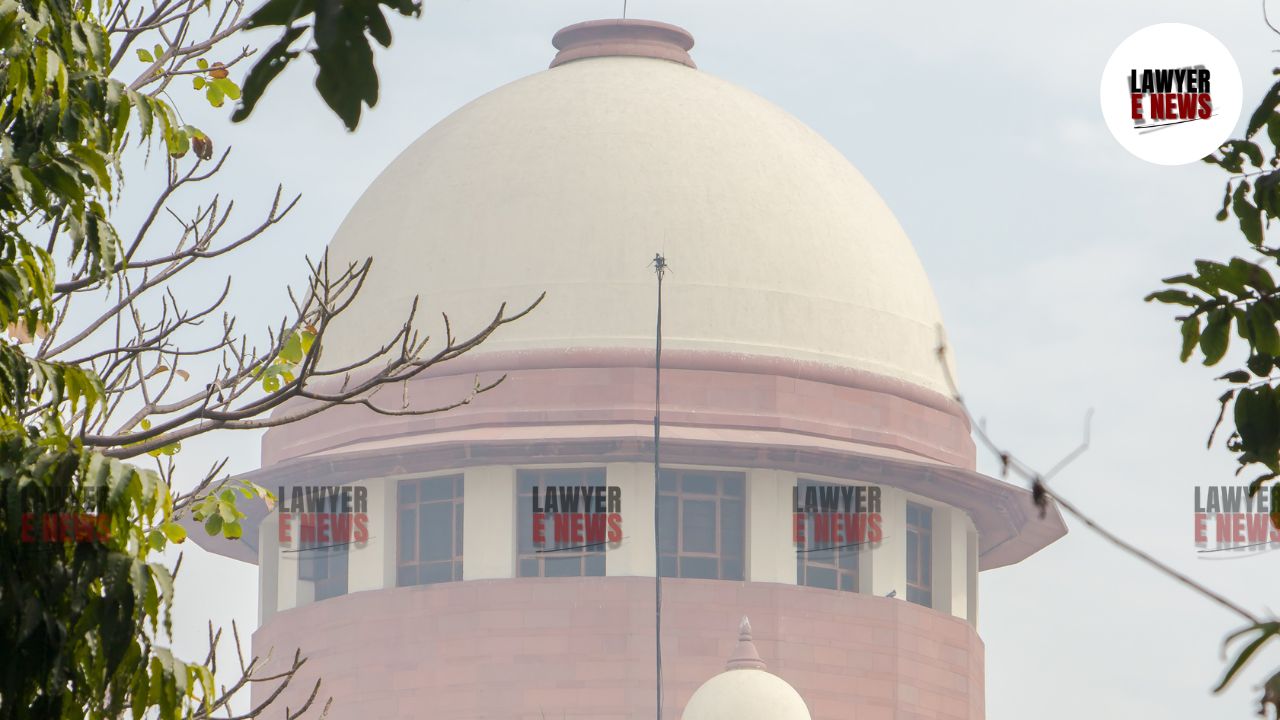-
by Admin
15 February 2026 5:35 AM



On November 5, 2024, the Supreme Court of India delivered a significant judgment, confirming the National Company Law Appellate Tribunal’s (NCLAT) decision to approve a Resolution Plan that limited the appellant’s recovery of statutory dues to INR 50 lakhs against a larger admitted claim of INR 6.29 crore. The Court’s decision reinforces the primacy of the Committee of Creditors’ (CoC) commercial decisions in insolvency cases, particularly where statutory claims conflict with the approved resolution plans.
The case involves the Noida Special Economic Zone Authority (NSEZ), which had leased land to the Corporate Debtor, Shree Bhoomika International Limited. Following the debtor’s default on payments and inactivity on the property, NSEZ initiated Corporate Insolvency Resolution Proceedings (CIRP) under the Insolvency and Bankruptcy Code, 2016 (IBC). In the CIRP, the Stressed Assets Stabilization Fund (SASF) emerged as the sole financial creditor and constituted the CoC.
NSEZ filed claims amounting to INR 6.29 crore based on outstanding dues, which were accepted by the Resolution Professional (RP). However, the Resolution Plan approved by the CoC allocated only INR 50 lakhs to NSEZ. Aggrieved by this, NSEZ challenged the plan’s approval before the National Company Law Tribunal (NCLT) and then the NCLAT, arguing that it should be entitled to the full claim amount and objecting to exemptions from transfer fees and penalties sought by the Resolution Applicant. These appeals were dismissed, prompting NSEZ to approach the Supreme Court.
The main legal issues in the case centered on the hierarchy between CoC’s commercial decisions under IBC and the statutory dues owed to a public authority. NSEZ contended that the resolution process should not override its statutory dues and that it was unjustly excluded from auction proceedings, affecting its potential recovery.
Justice Augustine George Masih, delivering the Court’s judgment, upheld the decisions of the NCLT and NCLAT, emphasizing several critical points:
Primacy of CoC’s Commercial Wisdom: The Supreme Court reiterated that decisions made by the CoC regarding the financial viability and restructuring of the debtor company are largely beyond judicial review. The Court cited precedents such as Essar Steel India Limited v. Satish Kumar Gupta and Ghanashyam Mishra and Sons Private Limited v. Edelweiss Asset Reconstruction Company Limited, affirming that CoC’s judgment in evaluating resolution plans should generally prevail, except in cases where statutory provisions are explicitly violated.
“Financial decisions taken by the CoC, especially with regard to viability while evaluating the plan, are non-justiciable unless they violate specific legal provisions,” observed Justice Masih.
Overriding Effect of IBC on Other Laws: Referring to Section 238 of the IBC, the Court confirmed that IBC provisions have precedence over conflicting statutes, including the Special Economic Zone Act, 2005. Therefore, claims or dues from government agencies or statutory bodies could be modified or extinguished in an approved resolution plan if they conflicted with the objectives of the IBC.
Evaluation of Valuation Process: NSEZ challenged the valuation process on grounds that no physical inspection was conducted by valuers, allegedly contravening Regulation 35(1)(a) of the IBBI Regulations, 2016. However, the Court found the valuation process acceptable, noting that both valuers followed the prescribed methodology by averaging the two closest valuations to determine a fair liquidation value.
“Valuation, being a question of fact, does not call for judicial interference where conducted per statutory procedure,” stated the judgment.
Statutory Dues Under the Resolution Plan: NSEZ argued that as a public authority, it should receive priority in the disbursement of statutory dues. The Court, however, rejected this argument, holding that dues not explicitly included in a resolution plan approved by the CoC are extinguished, per IBC’s framework. The Court underscored that NSEZ’s statutory dues, like any other claims, could be compromised under an approved plan, particularly if the CoC’s commercial wisdom deemed it essential to the restructuring.
Precedents Supporting Non-Interference in CoC Decisions: The Court cited several previous rulings, such as Maharashtra Seamless Limited v. Padmanabhan Venkatesh and DBS Bank Limited Singapore v. Ruchi Soya Industries Limited, which underscored that judicial bodies should avoid interfering in CoC decisions unless specific legal violations occur.
The Supreme Court dismissed the appeal, reinforcing that the CoC’s commercial decisions in evaluating and approving the Resolution Plan were valid and non-justiciable. The Court upheld the NCLAT’s decision and validated the INR 50 lakh disbursement to NSEZ, affirming that NSEZ’s full statutory dues were not enforceable within the IBC framework in this context.
Date of Decision: November 5, 2024
Noida Special Economic Zone Authority. VS Manish Agarwal & Others
